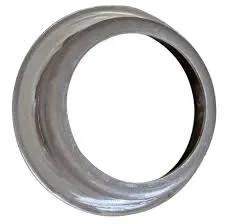ستمبر . 14, 2024 06:55 Back to list
cast iron sewer pipe
The Utilization and Benefits of Cast Iron Sewer Pipes
Cast iron sewer pipes have been a staple in plumbing systems for well over a century. Known for their durability and strength, these pipes have played a crucial role in the development of urban infrastructure, facilitating effective sanitation and drainage systems in cities around the world. This article explores the properties, advantages, and modern applications of cast iron sewer pipes.
One of the most significant attributes of cast iron is its durability. Cast iron pipes can withstand substantial pressure and are resistant to wear and corrosion. This longevity makes them an economical choice for sewer systems, often lasting up to 100 years with proper maintenance. Unlike plastic or PVC pipes, which can degrade or become brittle over time, cast iron pipes maintain their integrity, making them particularly suitable for high-traffic areas where soil movement could otherwise damage less robust materials.
Moreover, cast iron pipes provide excellent sound insulation. When wastewater flows through a pipe, it can generate noise that may be disruptive to the surrounding environment. The dense material of cast iron dampens the sound, resulting in quieter sewer systems, which is especially beneficial in residential areas. This sound attenuation is an often-overlooked advantage, as it contributes to a higher quality of life for those living near sewer lines.
In terms of environmental impact, cast iron pipes are recyclable, aligning well with modern sustainability practices. At the end of their long lifespan, they can be melted down and repurposed, thereby reducing waste and minimizing the need for new raw materials. This characteristic is increasingly important as communities strive to enhance their green credentials and reduce their carbon footprint.
cast iron sewer pipe

The installation of cast iron sewer pipes is another aspect that speaks to their efficacy. Despite being heavier than plastic or fiber cement options, the joints and connections of cast iron pipes allow for easy integration into existing systems. They can be fitted with a variety of connectors and seals that adapt to different plumbing setups. This flexibility helps ensure a secure and watertight system, minimizing the risk of leaks that can lead to significant environmental issues such as groundwater contamination.
Additionally, advancements in technology have led to improved treatment of cast iron surfaces, making them even more resistant to corrosion. Modern coatings and linings can further enhance their lifespan and effectiveness, making them ideal for even the most challenging sewage environments. Furthermore, cast iron pipes are capable of handling both cold and hot water, expanding their usability beyond just sewage to other areas of plumbing.
Despite the emergence of newer materials, the demand for cast iron sewer pipes remains steady. Municipalities continue to choose cast iron for their sewer systems, appreciating its longstanding reliability and performance. As urban areas expand and infrastructure demands increase, the role of cast iron in sewer construction will likely remain significant.
In conclusion, cast iron sewer pipes offer numerous advantages, including durability, noise reduction, recyclability, and ease of installation. As the world becomes increasingly aware of environmental sustainability and infrastructure reliability, cast iron pipes will continue to be a preferred choice for effective and long-lasting sewer solutions. Their proven track record in urban plumbing systems cements their place in the future of sanitary engineering, ensuring safe and efficient waste management for generations to come.
-
Centrifugally Cast Iron Water Main Pipe | Ductile Iron Solutions
NewsAug.24,2025
-
Durable Cast Steel Concrete Pipe Mold Bottom Rings & Base Trays
NewsAug.23,2025
-
Centrifugally Cast Iron Water Main Pipe for Reliable Mains
NewsAug.22,2025
-
Durable Centrifugally Cast Iron Water Main Pipe
NewsAug.11,2025
-
Centrifugally Cast Iron Water Main Pipes for Reliability
NewsAug.10,2025
-
High-Quality Centrifugally Cast Iron Water Main Pipes
NewsAug.09,2025


